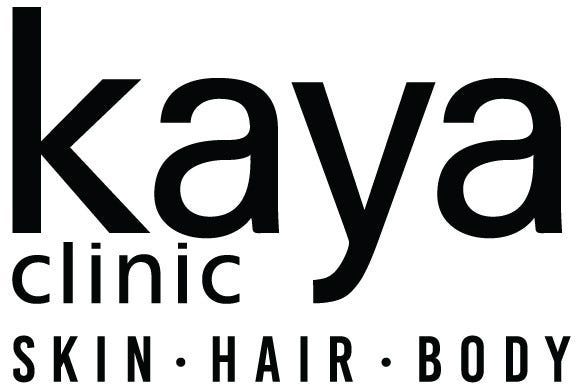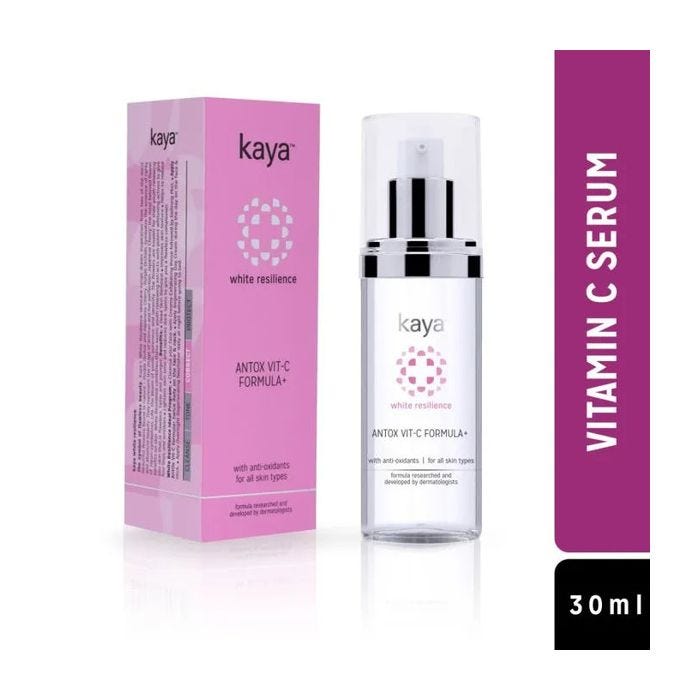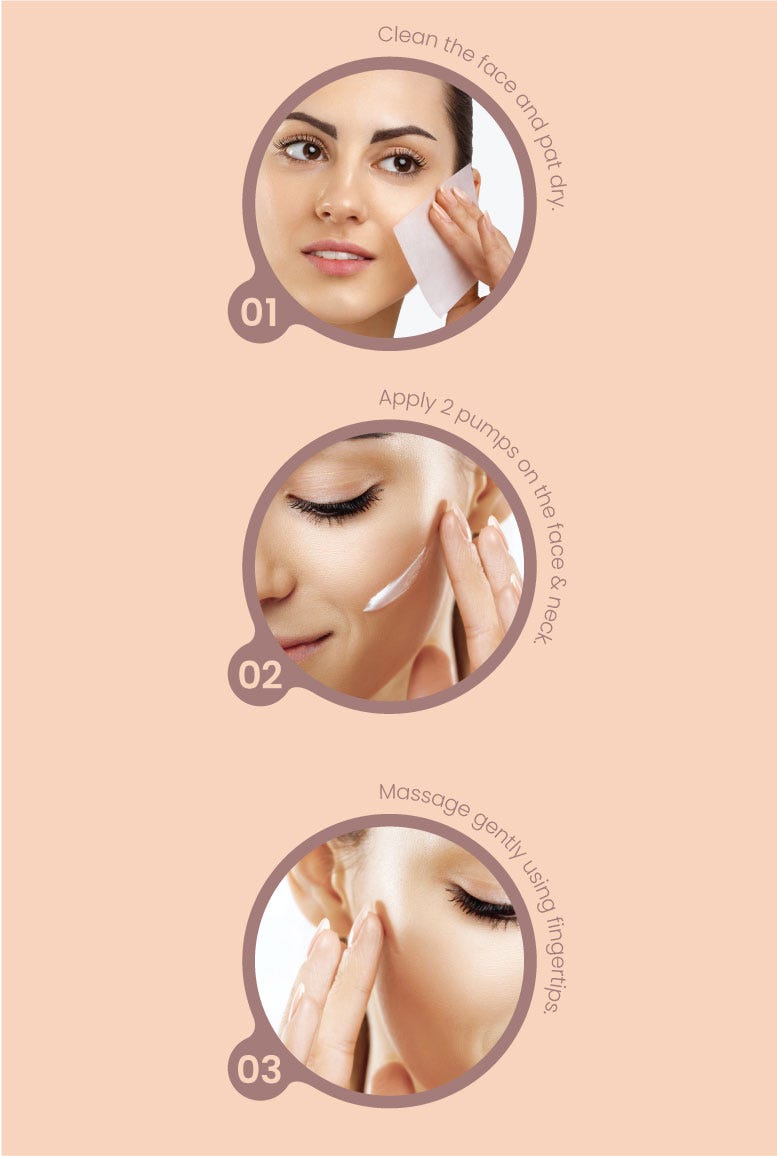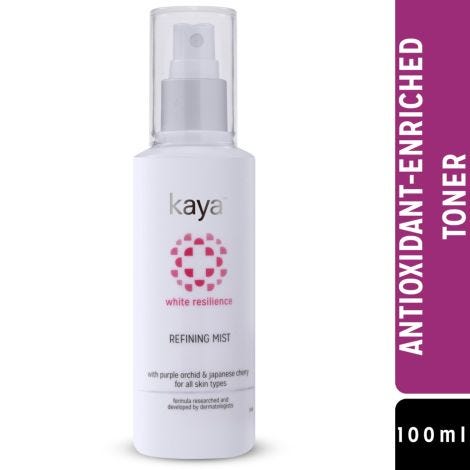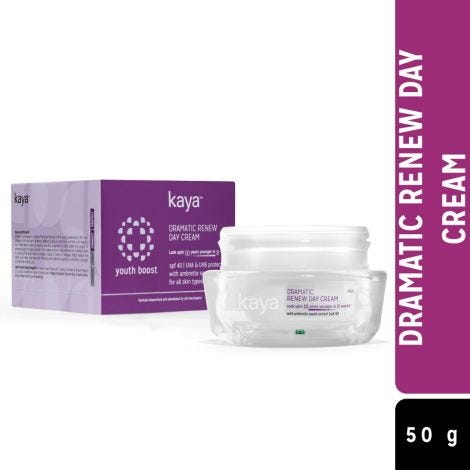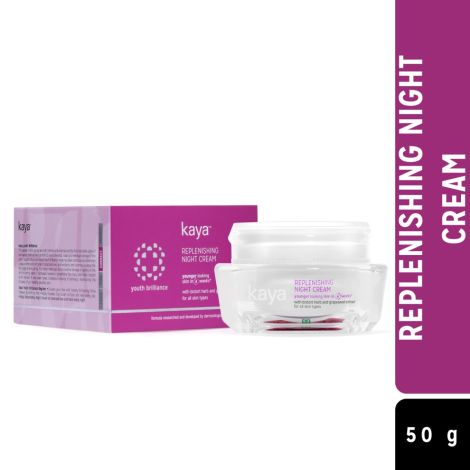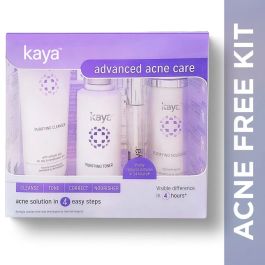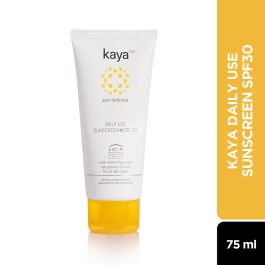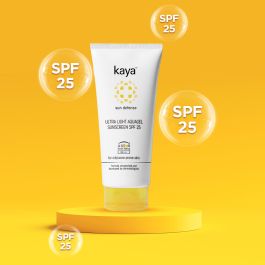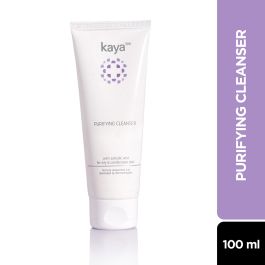Kaya Antox Vit-C : Vitamin C Serum for Face – Benefits, Uses, and How to Apply
Suitable for: All skin types
Product Description
Vitamin C serum for face is a must-have in any skincare routine, known for its powerful ability to target pigmentation, signs of aging, and dullness. This antioxidant-rich serum brightens the complexion and promotes collagen production, giving the skin a youthful glow. A good Vitamin C serum protects the skin from free radical damage caused by environmental factors like UV rays and pollution. Whether you're using the best Vitamin C serum or looking for a good Vitamin C serum for your skin type, incorporating it into your daily routine can yield transformative results. This guide will explore the various uses, benefits, and how the best Vitamin C serum for face works to enhance skin health, how to use it effectively, and any potential side effects. With a focus on best-rated Vitamin C serums, you'll be equipped with everything you need to achieve glowing, radiant skin.
Ingredients
- Aqua: Hydrates and maintains moisture in the skin, keeping it soft and plump.
- Sodium Ascorbyl Phosphate: A stable form of Vitamin C that brightens skin, reduces pigmentation, and promotes collagen production.
- Magnesium Ascorbyl Phosphate: Another stable form of Vitamin C, enhancing brightness and reducing fine lines.
- Cellulose Gum: Provides a smooth texture and locks in hydration for a healthy glow.
- Phenoxyethanol: Acts as a preservative, ensuring the serum remains safe and effective over time.
- Ethylhexylglycerin: Enhances skin-conditioning, providing additional moisture and protecting the skin barrier.
Uses of Vitamin C Serum
Vitamin C serum is an essential component in many skincare routines due to its diverse range of benefits. As a powerful antioxidant, it serves multiple purposes, each aimed at enhancing your skin's overall health and appearance.
Brightening the Skin
One of the primary uses of Vitamin C serum for face is its remarkable brightening effect. By inhibiting melanin production, Vitamin C helps lighten dark spots and hyperpigmentation. Regular use of the best Vitamin C serum can even out your skin tone and bring out a natural glow. It targets discoloration caused by sun damage, acne scars, or hormonal changes, leaving the skin visibly brighter and more radiant.
Anti-aging Properties
Vitamin C is well-known for its anti-aging benefits. It stimulates collagen production, which is crucial for maintaining the skin's firmness and elasticity. As we age, collagen levels decline, leading to sagging skin and the formation of fine lines and wrinkles. Using a good Vitamin C serum regularly helps minimize these visible signs of aging. By boosting collagen, the skin appears smoother, plumper, and more youthful over time. For those looking for an effective solution to aging skin, the best Vitamin C serum for face is a great choice.
Fades Pigmentation
Hyperpigmentation, including age spots, sun spots, and acne scars, can be effectively treated with Vitamin C serum. Vitamin C inhibits tyrosinase, the enzyme responsible for melanin production, which helps to lighten existing dark spots and prevent new ones from forming. This makes it an excellent option for those dealing with uneven skin tone. Whether you’re searching for the best-rated Vitamin C serum or just starting with a good Vitamin C serum, it will help you achieve a more even complexion with consistent use.
Protects from Sun Damage
While Vitamin C is not a replacement for sunscreen, it provides additional protection against sun damage. As an antioxidant, it neutralizes free radicals generated by harmful UV rays and environmental stressors. This protection helps prevent premature aging, sunburn, and other skin issues caused by prolonged sun exposure. For the best results, pair your Vitamin C serum with a broad-spectrum sunscreen to keep your skin safe and healthy.
Hydration
A well-formulated Vitamin C serum not only protects and brightens but also provides hydration. It helps the skin retain moisture, ensuring it remains soft, smooth, and plump. Vitamin C works synergistically with other hydrating ingredients like hyaluronic acid, boosting the skin’s moisture levels and preventing dryness.
Benefits of Vitamin C Serum for Face
Reduces Fine Lines and Wrinkles
One of the primary reasons people turn to Vitamin C serum is its ability to combat the visible signs of aging, such as fine lines and wrinkles. As a potent antioxidant, Vitamin C neutralizes free radicals—unstable molecules that break down collagen and elastin, leading to skin aging. The regular use of the best-rated Vitamin C serum helps slow down this process, promoting collagen production. As a result, the skin becomes firmer and more resilient, with fine lines and wrinkles reduced over time. Whether you’re just starting to notice early signs of aging or looking to minimize deeper wrinkles, incorporating Vitamin C serum into your routine can offer visible results.
Enhances Skin Radiance
Achieving radiant, glowing skin is one of the most sought-after benefits of using a good Vitamin C serum. Vitamin C works by inhibiting the enzyme tyrosinase, which is responsible for the overproduction of melanin (pigment). This process helps to brighten the skin and diminish dullness, resulting in a natural glow. The best Vitamin C serum for face can transform tired, lackluster skin into a more luminous and youthful complexion, making it an essential product for those looking to restore their skin’s radiance.
Boosts Collagen Production
Collagen is a vital protein responsible for maintaining the skin’s structure and firmness. As we age, the natural production of collagen slows down, leading to sagging and the formation of wrinkles. Using a Vitamin C serum for face consistently helps stimulate collagen synthesis, keeping your skin firm, plump, and youthful. By enhancing collagen production, Vitamin C serum helps prevent skin sagging and promotes elasticity, making it a must-have for long-term skin health.
Reduces Pigmentation
Vitamin C serum is also highly effective in reducing hyperpigmentation, dark spots, and blemishes. It works by inhibiting melanin production, the pigment that gives color to your skin. Over time, this leads to the fading of discoloration caused by sun exposure, acne scars, or hormonal changes. The result is a more even and radiant skin tone. For anyone battling uneven skin tone, incorporating a good Vitamin C serum into your skincare routine can make a significant difference.
Improves Skin Texture
Over time, consistent use of the best Vitamin C serum can dramatically improve the texture of your skin. Vitamin C helps promote cell turnover, removing dead skin cells and encouraging new, healthy ones to surface. This process leaves the skin feeling smoother and softer. Those struggling with rough or uneven skin texture will find that Vitamin C serum provides a noticeable improvement, helping to refine the overall appearance of the skin.
Soothes Inflammation
Vitamin C serum has anti-inflammatory properties that make it an excellent choice for individuals dealing with conditions like acne, rosacea, or general redness. It helps calm irritated skin, reducing swelling and redness, making it ideal for sensitive or reactive skin types. By soothing inflammation, Vitamin C serum helps maintain a calm, clear, and balanced complexion.
How Vitamin C Serum Works
Vitamin C serum is a powerful skincare product that delivers a concentrated dose of antioxidants to your skin, providing multiple benefits. The way it works is rooted in its antioxidant properties, which help protect and rejuvenate your skin on various levels.
Fights Free Radicals
The primary function of Vitamin C serum for face is its ability to neutralize free radicals, which are unstable molecules that cause oxidative stress. Free radicals are generated by environmental factors like pollution, UV rays, and toxins, leading to premature aging. Best Vitamin C serums effectively reduce the damage caused by free radicals, helping prevent wrinkles, fine lines, and other signs of aging.
Boosts Collagen Production
Collagen is essential for maintaining the skin’s structure and firmness. Over time, collagen production decreases, leading to sagging skin and wrinkles. Vitamin C serum helps stimulate collagen synthesis, promoting the regeneration of skin cells. This not only improves skin elasticity but also smoothens the appearance of wrinkles, making the skin appear firmer and more youthful. Regular use of the best-rated Vitamin C serum can slow down the natural aging process by maintaining collagen levels.
Inhibits Melanin Production
Melanin is the pigment responsible for dark spots and uneven skin tone. By inhibiting melanin production, Vitamin C serum helps fade existing pigmentation and prevents new dark spots from forming. This leads to a more even, radiant complexion, making it an excellent choice for those with pigmentation concerns.
Protects from Environmental Damage
Besides fighting free radicals, Vitamin C serum acts as a shield against environmental damage, such as pollution and harmful UV rays. While it is not a replacement for sunscreen, it enhances the skin’s natural defense system, reducing the likelihood of damage caused by external aggressors.
By incorporating the best Vitamin C serum for face into your routine, you can enjoy firmer, brighter, and more resilient skin that is better protected from daily environmental challenges.
How to Use Vitamin C Serum for Best Results
Using Vitamin C serum for face is an excellent way to achieve brighter, more radiant skin, but it's crucial to apply it correctly to reap the full benefits. From cleansing to sun protection, each step plays an important role in ensuring that you get the most out of your best Vitamin C serum. Below is a detailed guide on how to use Vitamin C serum for optimal results, along with essential tips for incorporating it into your skincare routine.
Step-by-Step Guide to Using Vitamin C Serum
Cleanse Your Skin
The first and most important step is to cleanse your skin thoroughly. Whether you have oily, dry, or combination skin, choosing a gentle cleanser suitable for your skin type is essential. Cleansing removes dirt, oil, and impurities, ensuring that the Vitamin C serum can penetrate deeply and work more effectively. Use lukewarm water and a mild, non-abrasive cleanser to avoid stripping your skin of its natural oils. For those who wear makeup, a double cleanse (using a makeup remover or cleansing oil followed by a gentle cleanser) is highly recommended to ensure a completely clean base.
Apply a Toner
Once your face is cleansed, the next step is to apply a toner. A toner helps balance your skin’s pH level and preps your skin for better absorption of the Vitamin C serum. Toners can also remove any leftover residue from your cleanser and help tighten pores. Opt for a hydrating, alcohol-free toner to ensure your skin stays moisturized and supple before applying the serum.
Apply Vitamin C Serum
After toning, it's time to apply the Vitamin C serum. This is the most crucial step. Take a few drops of the serum and gently massage it into your face and neck, ensuring even distribution. Don’t forget to cover areas prone to sun damage, such as the forehead, cheeks, and nose. The key is to use just enough product to cover your face without over-applying it. A good Vitamin C serum will feel light and absorb quickly into the skin, without leaving a sticky residue.
Massage the serum in an upward circular motion to promote better absorption and blood circulation. Using your fingers, pat the serum gently into the skin for about 30 seconds to a minute. This allows the skin to fully absorb the serum and ensures that it penetrates deep into the layers of the skin, where it can deliver its benefits more effectively.
Tip: If you are using other active ingredients in your routine (such as retinol or AHAs), apply your Vitamin C serum first before layering additional products. Vitamin C is water-based, so it should go on before any oil-based serums or creams.
Use a Moisturizer
Once the serum has been fully absorbed, follow up with a moisturizer. Moisturizing is essential to lock in the benefits of the Vitamin C serum. A good moisturizer will act as a barrier, sealing in the serum's active ingredients and providing hydration. Depending on your skin type, choose a lightweight gel-based moisturizer for oily skin or a richer cream-based moisturizer for dry skin. Look for ingredients like hyaluronic acid or ceramides that work well with Vitamin C to boost hydration without clogging pores.
Sunscreen is a Must
One of the most important steps when using Vitamin C serum in your morning routine is to apply sunscreen. Vitamin C serum makes your skin more sensitive to the sun, and without sun protection, you may risk damage from harmful UV rays. Apply a broad-spectrum sunscreen with at least SPF 30 to shield your skin from sun damage and enhance the protective effects of Vitamin C. This will also prevent the breakdown of collagen and reduce the risk of dark spots and pigmentation. Sunscreen should always be applied last in your skincare routine if you're heading out during the day.
Recommended Usage of Vitamin C Serum
To make the most of your Vitamin C serum, knowing when and how often to use it is critical. Here’s how you can incorporate it into your morning and night skincare routines:
Morning Routine:
The best Vitamin C serum for face is particularly beneficial when used in the morning, as it offers protective benefits against UV rays and environmental pollutants. Vitamin C acts as an antioxidant that neutralizes free radicals caused by sun exposure, helping to prevent damage before it happens. After cleansing and toning, apply the Vitamin C serum, followed by moisturizer and sunscreen. This daytime use provides an extra layer of protection, keeping your skin safe from the harmful effects of the sun while brightening and evening out your skin tone.
Night Routine:
At night, Vitamin C serum works to repair and regenerate the skin. Your skin goes through a natural repair cycle while you sleep, and applying Vitamin C during your nighttime routine enhances this process. After cleansing and toning, apply the Vitamin C serum to promote collagen production, fade dark spots, and improve overall skin texture. Follow it with a rich moisturizer to nourish your skin overnight. Some people also choose to layer retinol or peptides with their Vitamin C serum during their night routine for more intensive anti-aging benefits, but be sure to consult with a dermatologist to avoid irritation.
Additional Tips for Using Vitamin C Serum
Start Slowly: If you’re new to using Vitamin C serum, start with a lower concentration (around 10%) and gradually increase to a higher concentration (up to 20%) as your skin builds tolerance.
Patch Test: Always perform a patch test before applying Vitamin C serum to your entire face, especially if you have sensitive skin. Apply a small amount of the serum to your forearm or behind your ear and wait 24 hours to check for any allergic reactions.
Storage: Vitamin C serum can degrade and lose effectiveness when exposed to light and air. Store your serum in a cool, dark place, and make sure it’s in an opaque or amber-colored bottle. Some best-rated Vitamin C serums are packaged in air-tight containers to prevent oxidation.
Layering with Other Products: Vitamin C serum works well with hydrating products like hyaluronic acid, but it may not always pair well with ingredients like niacinamide or retinol. If using these actives, try applying them at different times of the day (e.g., Vitamin C in the morning and retinol at night) to prevent irritation.
Potential Side Effects of Vitamin C Serum
Irritation or Redness: Sensitive skin types may experience redness or stinging upon initial use.
Dryness: Overuse can cause dryness or flakiness; always follow with a moisturizer.
Increased Sun Sensitivity: Vitamin C can increase photosensitivity, making sunscreen application essential.
Breakouts: High concentration or incompatibility with skin type can lead to breakouts; perform a patch test before full use.
Faq Related to Vitamin C Serum for Face
Can I use Vitamin C serum every day?
Yes, Vitamin C serum can be used daily, both in the morning and evening, as long as your skin can tolerate it. When used consistently, Vitamin C serum for face can offer long-term benefits such as brightening the skin, reducing signs of aging, and fading pigmentation. It is important to start slow, especially if you are new to using Vitamin C. Begin by using it once every other day and gradually increase to daily use as your skin builds tolerance. If your skin shows no signs of irritation, you can eventually incorporate it into both your morning and night skincare routines. However, always pair your Vitamin C serum with sunscreen during the day, as it can make your skin more photosensitive. Daily application of the best Vitamin C serum will provide continuous protection from environmental damage and promote collagen production for healthier, younger-looking skin.
How long does it take to see results with Vitamin C serum?
Results with Vitamin C serum vary depending on your skin type, the concentration of the serum, and how consistently you use it. On average, you can expect to see noticeable improvements in your skin’s texture, brightness, and the fading of dark spots within 4-6 weeks of consistent use. When using a good Vitamin C serum, improvements in fine lines, wrinkles, and overall radiance can be observed. The best results come with patience and regular application, as Vitamin C serum works by gradually brightening your complexion and neutralizing free radicals. For more stubborn pigmentation or deeper wrinkles, it may take longer—up to 2-3 months. However, the ongoing use of a best-rated Vitamin C serum will ensure continuous protection against UV damage, pollution, and aging. Keep in mind that using a sunscreen in conjunction with Vitamin C will also maximize the serum's effectiveness.
Can Vitamin C serum cause purging?
Purging, which refers to breakouts that occur when a new skincare product speeds up cell turnover, is rare when using a Vitamin C serum for face. However, mild irritation or initial breakouts can happen if your skin is sensitive or not accustomed to active ingredients. Vitamin C serum works as an antioxidant, so it doesn't typically trigger purging, which is more common with exfoliating acids like AHAs or retinol. If you experience breakouts, it could be due to a reaction to the formulation or an indication that the concentration is too high for your skin. Start with a lower concentration (around 10%) and gradually increase usage. A patch test is always advisable before full application to avoid any severe reactions. If purging or irritation persists, consult a dermatologist to adjust your skincare routine.
What is the best Vitamin C serum for face?
The best Vitamin C serum for face is one that contains a stable form of Vitamin C, such as L-ascorbic acid, in concentrations between 10-20%. L-ascorbic acid is the most potent and well-researched form of Vitamin C, known for its effectiveness in brightening skin, boosting collagen production, and providing antioxidant protection. Additionally, it’s important that the serum contains complementary ingredients like Vitamin E and ferulic acid, which stabilize the Vitamin C and enhance its efficacy. A good Vitamin C serum should also be free from irritants like alcohol or synthetic fragrances, making it suitable for sensitive skin types. The texture and packaging also matter—opt for a serum that is lightweight, non-greasy, and comes in a dark or opaque bottle to prevent oxidation. By choosing a well-formulated product, you’ll ensure the serum works effectively to brighten your complexion and combat signs of aging.
Can I use Vitamin C serum with other active ingredients?
Yes, Vitamin C serum can be used with other active ingredients, but some combinations require caution. Vitamin C serum for face works well with hyaluronic acid, Vitamin E, and ferulic acid, as these ingredients enhance its hydration and antioxidant effects. However, when using it with niacinamide, it's advised to use them at different times of the day (Vitamin C in the morning and niacinamide at night) since they can cancel out each other’s effects when used together. The same goes for retinol—using them together can increase the risk of irritation. It’s best to apply Vitamin C serum in the morning for its protective benefits, and use retinol at night for skin renewal. Always ensure you're following with sunscreen during the day, as Vitamin C can make your skin more sensitive to UV rays.
Is Vitamin C serum safe for all skin types?
Yes, Vitamin C serum is generally safe for all skin types, including oily, dry, combination, and sensitive skin. However, individuals with sensitive skin should be cautious and start with a lower concentration of Vitamin C (around 10%) to see how their skin reacts. A patch test is highly recommended before using Vitamin C serum for face regularly, especially if your skin tends to be reactive. Dry skin types will benefit from the hydrating effects of Vitamin C serum, while oily or acne-prone skin will appreciate its anti-inflammatory and brightening properties. It's important to choose a good Vitamin C serum with a stable formulation and combine it with a moisturizer and sunscreen to prevent dryness or irritation. If used properly, Vitamin C serum can improve skin health for all skin types, leaving it brighter, more even-toned, and youthful.
Can I use Vitamin C serum with retinol?
It is generally recommended to use Vitamin C serum in the morning and retinol at night to avoid irritation. Both Vitamin C and retinol are powerful skincare ingredients that offer significant benefits but can cause sensitivity when used together. Vitamin C serum provides antioxidant protection and boosts collagen during the day, while retinol promotes skin cell turnover and regeneration at night. Using them in separate routines maximizes their individual benefits and minimizes the risk of irritation or dryness. If you want to layer them together, it’s best to consult a dermatologist for guidance, as this combination might require careful balancing based on your skin’s tolerance.
Does Vitamin C serum expire?
Yes, Vitamin C serum tends to oxidize and lose its effectiveness over time, especially when exposed to air and light. Most good Vitamin C serums come in airtight, opaque packaging to minimize exposure and prolong shelf life. Once Vitamin C oxidizes, it turns yellow or brown and becomes less potent, which is a sign that the serum has expired. For optimal storage, keep your serum in a cool, dark place. Some people even refrigerate their Vitamin C serum to extend its shelf life. On average, Vitamin C serums last between 3-6 months after opening, but this can vary depending on the formulation.
Can men use Vitamin C serum?
Absolutely! Vitamin C serum is beneficial for both men and women. Men can incorporate Vitamin C serum for face into their skincare routine to address common skin concerns like aging, pigmentation, and dullness. The serum's antioxidant properties are especially helpful for men who spend time outdoors, as it protects the skin from UV damage and environmental pollutants. Additionally, men with acne-prone skin will benefit from Vitamin C’s ability to reduce inflammation and promote healing. Vitamin C serum can also help with post-shaving irritation and brighten the overall complexion, making it a great skincare product for all genders.
What should I avoid after applying Vitamin C serum?
After applying Vitamin C serum for face, it’s crucial to avoid direct sun exposure without sunscreen. Vitamin C serum can make your skin more sensitive to sunlight, so applying sunscreen with at least SPF 30 is a must to prevent sunburn and further skin damage. Additionally, avoid using strong exfoliants, such as glycolic acid or salicylic acid, immediately after applying Vitamin C. These acids can cause irritation when combined with Vitamin C, especially on sensitive skin. It’s also advisable to avoid using niacinamide at the same time, as it can reduce the effectiveness of Vitamin C when used together.
How to pick the best Vitamin C serum for face?
When selecting the best Vitamin C serum for face, it’s important to look for a product containing a stable form of Vitamin C, like L-ascorbic acid, in concentrations of 10-20%. Higher concentrations can cause irritation, so start low and increase as your skin adapts. A good Vitamin C serum should also include supporting ingredients like Vitamin E and ferulic acid, which help stabilize and boost the serum’s effectiveness. Pay attention to packaging—Vitamin C is sensitive to light and air, so opt for serums in opaque, airtight containers. Additionally, make sure the formula is free from alcohol and synthetic fragrances to minimize the risk of irritation.
Will Vitamin C serum make my skin peel?
Vitamin C serum is not known to cause skin peeling in most users, but if you have sensitive skin or are using a high concentration, you may experience mild peeling. This is especially true if you're new to using Vitamin C serum or are combining it with other active ingredients. To minimize the chances of peeling, start with a lower concentration of Vitamin C (around 10%) and gradually increase your usage as your skin builds tolerance. Make sure to moisturize after applying Vitamin C to keep your skin hydrated and prevent dryness. If peeling persists, reduce the frequency of use or consult a dermatologist.
Can I wear makeup over Vitamin C serum?
Yes, you can wear makeup over Vitamin C serum. In fact, applying Vitamin C serum for face before makeup is a great way to prep your skin, as it brightens your complexion and provides a smooth base. Make sure the serum has fully absorbed into your skin before applying foundation or other makeup products to avoid pilling. The lightweight and non-greasy texture of most good Vitamin C serums makes them ideal for layering under makeup. Vitamin C also provides added protection from free radicals throughout the day, so it's an excellent addition to your morning skincare routine.
How to store Vitamin C serum?
Vitamin C serum is sensitive to light, air, and heat, which can cause it to oxidize and lose effectiveness. To maximize its shelf life, store your serum in a cool, dark place, such as a cabinet or drawer. Many best Vitamin C serums come in opaque or amber-colored bottles to protect them from light exposure. Some people also choose to store their Vitamin C serum in the refrigerator to prolong its potency. Avoid leaving the serum in direct sunlight or warm environments, as this will accelerate the oxidation process. Always make sure the bottle is tightly sealed to minimize air exposure.
Is Vitamin C serum good for acne-prone skin?
Yes, Vitamin C serum for face is highly beneficial for acne-prone skin. Its anti-inflammatory properties help reduce the redness and swelling associated with acne, while its antioxidant benefits promote faster healing. Vitamin C serum also aids in fading post-acne marks and hyperpigmentation, giving the skin a more even tone. Additionally, it helps regulate oil production, which can minimize breakouts. When choosing a good Vitamin C serum for acne-prone skin, look for a lightweight, non-comedogenic formula to ensure it doesn’t clog pores. Regular use can help calm acne flare-ups and prevent the formation of new blemishes.
This formula is researched and developed by dermatologists. At Kaya, our team of expert dermatologists over the last 18 years, have understood the uniqueness of Indian skin and created special formulations to provide solutions that are designed for best efficacy
Best for
Oily Skin
Combination Skin
Dry Skin
Normal Skin
Sensitive Skin
Concerns
Dull Skin
Early signs of aging
Fine lines
Wrinkles
Age spots
Blemishes
Most Trusted Options with Kaya Antox Vit C Formula
In Demand
